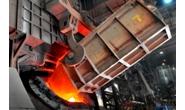Prices

April 6, 2017
Scrap Prices Slip Less Than Originally Thought
Written by John Packard
Scrap dealers are pointing at the order book at the domestic mills as one of the main reasons why ferrous scrap prices inched back after the domestic mills initially pushed for shred and obsolete grades to be lower by $30 per gross ton. The mills could not get enough dealers to fill their scrap order books and by this morning the offers were up by $5-$10 per gross ton.
We heard from scrap guru Mike Marley earlier today who told his readers about the events of the day:
“Midwest steelmakers couldn’t find enough dealers willing to meet their shredded scrap needs at down $30 per gross ton. When the dust settled Wednesday morning, dealers in the Detroit area booked new orders for the fragmented scrap at $300 per ton, down $20 per ton from last month. Initially, mills that are often pricing pacesetters talked about taking shredded down $30 and sought a “sympathetic” $10 per ton cut in bundles and busheling prices.
![]() “Deals for plate and structural scrap were off by $30, but little of that scrap is being traded there compared to the volumes of shredded, busheling and bundles. Prices for the industrial grades are off by the expected $10 per ton to an average of $350 per ton delivered to mills in the Detroit region.
“Deals for plate and structural scrap were off by $30, but little of that scrap is being traded there compared to the volumes of shredded, busheling and bundles. Prices for the industrial grades are off by the expected $10 per ton to an average of $350 per ton delivered to mills in the Detroit region.
“Similar declines were being posted in the Pittsburgh and New England area, sources said, and probably will be repeated elsewhere later this week.”
Another reason for scrap not cratering is the bounce in export prices off the east coast. According to our sources, export prices rose from $261 per metric ton for 80/20 melt about a week ago to $275 per metric ton this week for 80/20 and $280 per metric ton for shred delivered to a Turkish port.
We heard late this afternoon from one of our dealers on the east coast who told us:
“The market appears to have bottomed and bounced up a bit thanks to the pick-up in export pricing and sales volume over the last week. In addition, dealers had lowered scale prices in anticipation of a lower market in April, and consequently began to see weaker inflows to their yards. On top of all this is what seems to be improving demand at US steel mills. Initially, shredded and obsolete grades traded lower by $30/GT but by today dealers could sell for $20-$25/GT lower than last month. Prime scrap traded sideways (quietly) to $10/GT lower. Despite hearing that Nucor has procured 15 or so cargos of pig iron and prime scrap that are due to begin arriving in mid-May, demand at US mills remains strong, and as of today it appears that the market could stabilize around these price levels for the foreseeable future assuming demand remains consistent or improves a bit. It does not seem like the market will trade lower next month, but I also cannot call the market dramatically higher either.”
The question now is, will the sideways to $10 slippage in prime grades coupled with a $20 per gross ton in shred and obsolete grades have any impact on price negotiations? This is something we will watch closely over the coming days.
We will have more on scrap later this weekend or very early next week.







